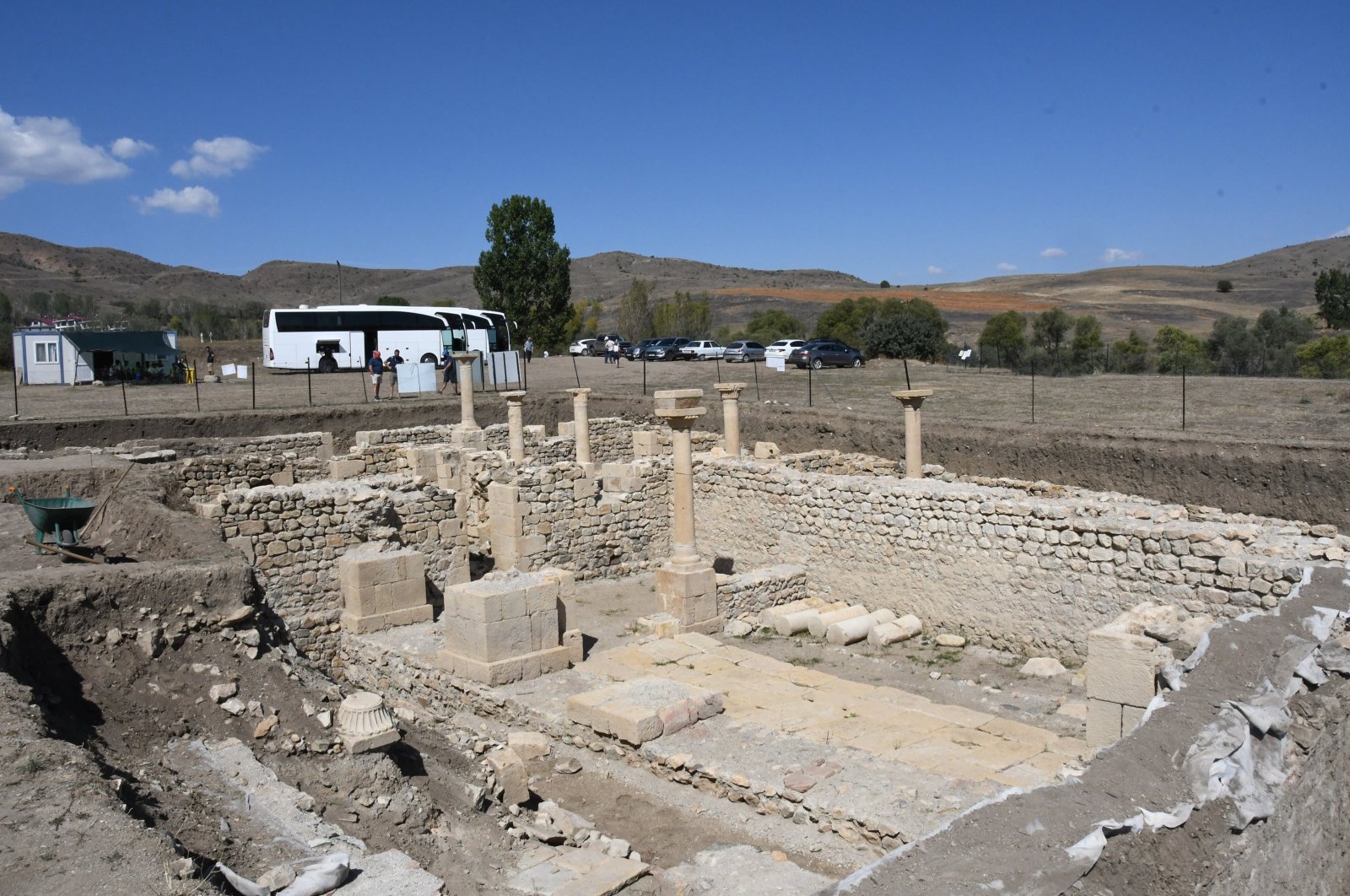
In the village of Sadak, located in the Kelkit district of Gümüşhane, northeastern Türkiye, the ongoing excavations at the ancient city of Satala have recently attracted a notable group of international academics and archaeologists.
This event attracts 69 scholars from 30 countries, including Germany, England, Romania and Russia. They are joined by key local officials, including Justice and Development Party (AK Party) Gümüşhane Member of Parliament Celalettin Köse, Kelkit District Governor Kadir Algın, Provincial General Assembly Chairperson Eşref Balki and Kelkit Mayor Ünal Yılmaz.
The ancient city’s excavation site, situated in the northern and western parts of Satala, has been a focal point for archaeological research. Elif Yavuz Çakmur, the excavation leader from Karadeniz Technical University’s Department of Archaeology, provided an overview of the ongoing work.
Her team of 18 is currently focused on expanding the site’s exploration, with a significant emphasis on necropolis (burial site) studies.
Over the past two months, the team has uncovered 16 graves, including an intriguing grave of a woman, which they have tentatively classified as belonging to a later period. Further research will provide more detailed insights into this find.
Celalettin Köse expressed the importance of the international visit, emphasizing that it highlights Satala’s potential as a key tourism destination for Gümüşhane. "The arrival of 69 scholars from 30 different countries to Satala is a landmark event for our region. I had envisioned a future where history and archaeology enthusiasts from around the world would visit Satala, and today, we are witnessing that vision coming to life."
"As more historical artifacts emerge from the ground, Satala's global tourism potential will become more widely recognized. Our ultimate goal is to establish a museum here to showcase these historical treasures," Köse said.
In addition to the ongoing excavation, the site has already yielded significant discoveries. One of the notable finds is an Urartian belt, estimated to be around 2,800 years old, which is currently exhibited at the Gümüşhane City Museum. Another significant artifact, a 1,500-year-old Roman legion armor, was recently highlighted by the Ministry of Culture and Tourism. This armor is currently displayed in Erzurum but will soon be brought to Gümüşhane for public exhibition.
Dr. Andreas Thiel, head of the Monument Protection Office of the Stuttgart Government District, remarked on the excavation's significance. He noted that while Roman legions typically led to the founding of major cities, the fact that Satala remains largely unbuilt over provides a rare opportunity for archaeological exploration.
"It's a unique chance for us to study why a large city did not develop here despite the presence of Roman legions, we hope that ongoing research will help answer this question and reveal even more artifacts," Thiel said.
